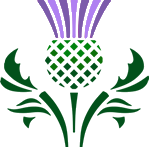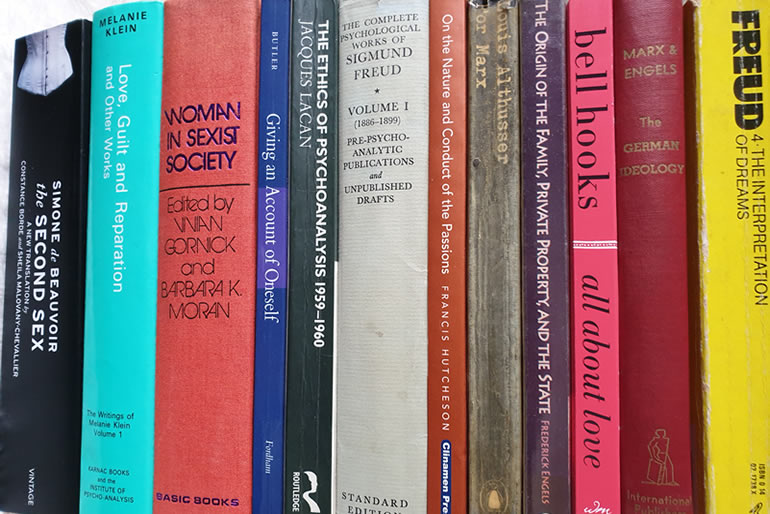
Some of my favourite theoretical books
Theories
I like theories – well some – because they are often elegant sets of ideas with the purpose of explaining difficult problems.
Sometimes what passes for a ‘theory’ is no more than ordinary common sense and sometimes so-called theories are no more than the ramblings of a deranged mind. But a good theory can explain things in ways that would not be possible without it and is sustainable over time and in the face of accumulated evidence.
Theories get tested, revised, developed, reconsidered, misunderstood, modified, jettisoned, bastardised, replaced, reconfigured and sometimes just ditched or clung to for no good reason. That’s fine. I guess the trick is to know what theories you subscribe to and to know why they, and not others, appeal to you.
I am, in general, a fan of the ‘natural’ sciences. I might have been a decent natural scientist if I did not have pressing social, cultural and philosophical problems pushing me into those fields. I do consider myself a scientist in the continental European sense of being a seeker after truths and a sifter and assayer of evidence and ideas.
There are two big social theories that I have been particularly impressed by and that have continued, for decades, to inform my thinking.
They are Marxism and Psychoanalysis. Let me explain a little of why I think they are impressive and why I think they are worth sticking with.
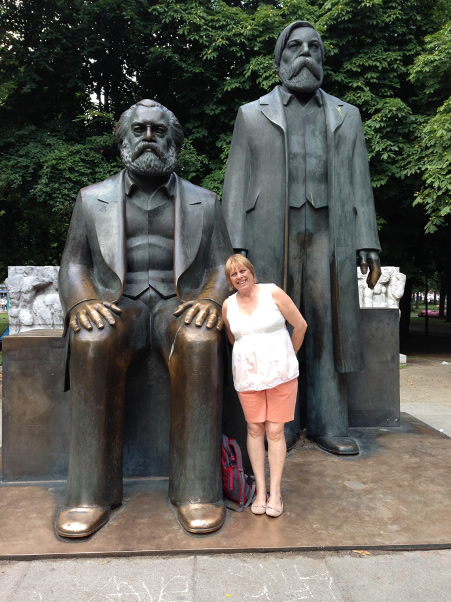 Marx and Engels statue in Berlin. Marx is on the left, unsurprisingly.
Marx and Engels statue in Berlin. Marx is on the left, unsurprisingly.
Karl Marx
Karl Marx was born in 1818 in Trier, Prussia (now Germany). As a student he was caught up in current debates about the work of the philosopher G.W. F. Hegel. Marx was critical of Hegel’s more metaphysical ideas but influenced by his dialectical methods for studying the development of history. Marx’s socialist and liberal ideas got him into trouble with various state authorities and he had to leave Prussia for his own safety. He lived initially in Paris and subsequently in London. While living in Paris Marx met Friedrich Engels who would become his lifelong collaborator and often his bankroller.
In Paris, Marx developed his thinking by continuing to study dialectical ideas, mingling with French socialists and, above all, engaging in a deep analysis of economics. Political economy would become his main field of operations for the rest of his life.
Marx is most widely known for promoting communism. But it is his analysis of capitalism that makes him one of my theoretical heroes.
There are two main ideas of Marx’s that for me stand the test of time. They are his idea of surplus value and his ideas about the internal dynamics of capitalism.
Surplus Value
In its simplest form surplus value is the idea that when an employer pays an employee less than the value of the transformative work that the employee does, the employer is extracting a surplus value. That surplus value going to the employer is one of the key reasons for a cumulative imbalance in economic life that means employees are short changed and employers are exploitative. Together with other factors this constitutes the main reason why capitalism has an internal dynamic that causes it to generate social, economic and political tension.
Apart from anything else I think that the extraction of surplus value from workers by employers is just rude.
The Destructiveness of Capitalism
In its simplest form the dynamics of capitalism mean that employers accumulate capital derived from their unjust extraction of surplus value. The short version of this is that inequality increases and this forms the basis for social, economic and political conflict. Marx’s brilliant analysis of capital and its accumulation is much more nuanced than this and focuses of the way that increased technology (a form of capital) employed in the development of capitalism doesn’t lead to better conditions for workers but actually increases inequality. Marx also goes on to argue that the internal dynamics of capitalism are such that capitalists will do virtually anything to preserve their extractive practices including by such means as the imperial domination of workers in other countries. Capitalism, due to its internal dynamics, will fight to the death to preserve itself and can reconfigure and rebrand itself repeatedly. However, because it only serves the interests of small numbers of any population it will never be in the interests of most people and when it hits its periodic crises, it will come under attack.
Here's a simple question. If capitalism works well, why do huge companies like Apple, Rolls Royce, Exxon etc issue profit warnings? If even the most successful companies struggle to manage does this not suggest some inherent problem with the system? So even from the point of view of capitalists, the system seems to fail.
More importantly it fails for everyone else. Unemployment, climate disasters, racism, imperialism, poverty and dangerous working conditions are all inevitable consequences of the drives for profit and accumulation.
Marx also analysed money, social conditions, political movements, the history of different economic eras and a host of lesser political, economic and social phenomena. Some of his ideas are complex but he writes in a mostly accessible style and I recommend reading his work – especially his great study of capitalism simply called ‘Capital’.1Marx, K. () Capital (Originally published in German as Das Kapital)
Later pro-Marxist writers built upon Marx’s ideas. For example, the French Algerian thinker Louis Althusser developed Marx’s ideas to show how ideology works.
Psychoanalysis
One of the problems I had with Marx’s work was that while it could explain social movements it didn’t offer much of an understanding of the psychical worlds of individuals and also wasn’t great at explaining how people came to support or reject ideas. In particular, as a woman, I wanted to understand more about how ideologies of femininity worked.
I embarked on extended study of psychoanalytic ideas which offered routes toward explaining the constructions of femininity, sexual difference and desire.
I started, like many women of my generation, with Juliet Mitchell’s book Psychoanalysis and Feminism (1974).2Mitchell, J. (1975[1974]) Psychoanalysis and Feminism. Penguin: Harmondsworth From there I went to Freud and then to Jacques Lacan.
 Sigmund Freud
Sigmund Freud
Sigmund Freud
Freud was born in 1856 in Freiberg in Mähren, (now Prǐbor), in Moravia (now Czechia) but moved with his family to Vienna when he was four years old. Freud was an exceptional scholar and although he had strong interests in philosophy and the arts, studied medicine at the University of Vienna where he specialised in neurology. He worked first as a research neuropathologist but then set up in private practice as a specialist in nervous disorders. He travelled to Paris to study under Jean Martin Charcot the famous neurologist who was experimenting on hysteria and hypnosis. It was this work that propelled Freud away from neurological research towards psychopathology.
In the early 1880s Freud began collaborating with Josef Breuer whose case of Anna O, a hysterical woman who was suffering paralyses and anaesthesia, they discussed at length. It was in relation to this case that Freud began to formulate the idea of an ‘unconscious’ portion of the mind.
The Unconscious
Freud developed the idea that a part of the mind was ‘unbewusst’ unknown. People had thought there might be parts of the mind beyond everyday access before but Freud developed and elaborated the idea that this part of the mind was unknown and that parts of it would remain unknowable. He was able to show that some of his nerve patients’ psychopathologies could be explained by reference to ideas operating beyond consciousness or beyond knowledge that caused associations and symptoms which made ‘sense’ when they were analysed. Famously he claimed that the operation of the unconscious could also be demonstrated in the content and functioning of dreams and in what he called the ‘psychopathology of everyday life’ – in slips, mistakes and other parapraxes.
Freud went on to build a huge and influential theoretical edifice dealing with the structure and functioning of the psyche, various kinds of psychopathology, the practice of psychoanalysis, literary and artistic interpretation and ideas about developments in religion and morality.
There have been many subsequent psychoanalysts who have built upon Freud’s ideas including Ernest Jones, Melanie Klein, Joan Riviere, Donald Winnicott and Ronald Fairbairn – each diverging off according to their particular interests and ideas. The most celebrated and most controversial of Freud’s followers was the French psychoanalyst, Jacques Lacan.
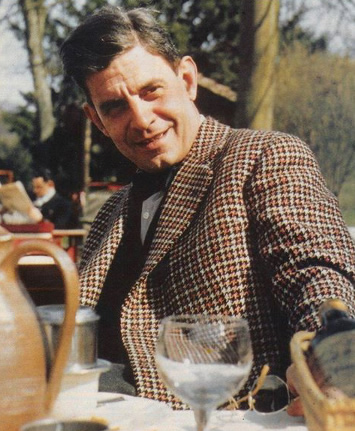 Jacques Lacan
Jacques Lacan
Jacques Lacan
Jacques Lacan was born in Paris in 1901. He studied at the Collège Stanislas, an upmarket school not far from the Luxemburg gardens. In his late teens and twenties he was hanging out with the literary and artistic avant garde of the Parisian left bank and was particularly interested in surrealism. In 1920 he began medical training and specialised in psychiatry. Lacan completed his medical education with a thesis on the relationship between paranoiac psychosis and personality. Lacan’s psychopathological work saw him distrustful of conventional psychiatry and increasingly interested in psychoanalysis. Following detailed study, he felt that some of Freud’s most important ideas had been lost and he advocated a ‘Return to Freud’ to reconnect with what he thought was the radical heart of Freud’s discovery.
Lacan thought that the most important dimension of Freud’s theories of the unconscious was that concerning the way language functioned. Freud had shown how dreams, symptoms and slips were organised by and through linguistic associations. Lacan thought later that Freud had made an even more important discovery than he knew – that, in Lacan’s words, the unconscious is structured like language.
Lacan went on to develop complex theories about psychopathology and the practice of psychoanalysis based on paying more rigorous attention to the functioning of language in the pathologies of analysands. Lacan was able to show that it is the precarious processes of co-option of children into their language communities (or not) that lay the basis for neurosis, psychosis and perversion. And as a corollary, that linguistic units, signifiers, are often the means by which analysands ‘give away’ their hidden stories, and by which analysts may come to comprehend something about their patients’ problems. Lacan built on these ideas to create a vast body of work examining psychoanalysis, psychopathologies, sexuality, literary and artistic works and even forays into aspects of science and mathematics.
I am deeply grateful for Freud and Lacan’s work for giving me routes into understanding aspects of human mental functioning and I continue to use their and Marx’s theories to help me make sense of an often incomprehensible, occasionally insane and frequently bizarre world.
That doesn’t mean I am a slave to their ideas but rather that I use them in as much as I find them useful. And they function for me in different ways. There is hardly a day goes by when I don’t think in Marxist terms about the world round about me. However, I can quite often go some time before applying psychoanalytic ideas to my world. This is partly a function of the central concepts of these theories. In Marx’s case, political economy confronts me daily and the operation of capitalism is a relatively obvious part of everyday life. In the case of Freud and Lacan’s ideas, the unconscious, by its very nature, is something that we don’t ‘know’ for much of the time and so, it is easier to avoid – or at least it appears that way. I have to actively apply myself to a type of theoretical thinking to engage with psychoanalytic ideas. Although, like many people, I stumble across my own parapraxes regularly. Sometimes I pay attention to them, sometimes I’m too pre-occupied with other things. And sometimes, also like others, I just don’t want to know.
Great White Male theories.
I am acutely conscious that here I am, a woman, a feminist and an outspoken anti-racism campaigner and yet I am promoting the work of three old, and indeed dead, white men.
It is an unfortunate fact of history that these white men had opportunities to produce theoretical work and have it engaged with in public discourse at the expense of less fortunate others. It is also true that each of them faced difficulties and sometimes discrimination. Marx and Freud were Jewish and Freud especially suffered from anti-Semitism. Lacan’s francophone work sometimes struggled to be taken seriously by the psychoanalytic establishment of the post-Freud era, which was, by then, significantly anglophone. However, relative to most women and most black and minority ethnic people they had opportunities undreamt of.
There are many other thinkers, among them women and black people, that I have also found useful. Here is a list off the top of my head and in no particular order:
Judith Butler, Slavoj Žižek, James Baldwin, bell hooks, Frantz Fanon, V. I. Lenin, Chantal Mouffe, Antonio Gramsci, John Berger, Michel Foucault, Simone de Beauvoir, Angela Davis, Luce Irigaray, Julia Kristeva, Nancy Chodorow, Carol Gilligan, Gayatri Chakravorty Spivak, Emmanuel Levinas, Cornel West, Maria Rosa Menocal, Elaine Showalter and Jessie Bernard.
I have limited myself here to relatively recent work.
Who knows what wonderful theories might have emerged from the black men and women, the oppressed white women and the poor of every colour, creed and gender etc., if they had had the opportunities more readily available to privileged white men. We are unlikely to ever know and yet it is easy to acknowledge that these are real losses and to mourn accordingly. Let’s hope we do better on this front in the future.
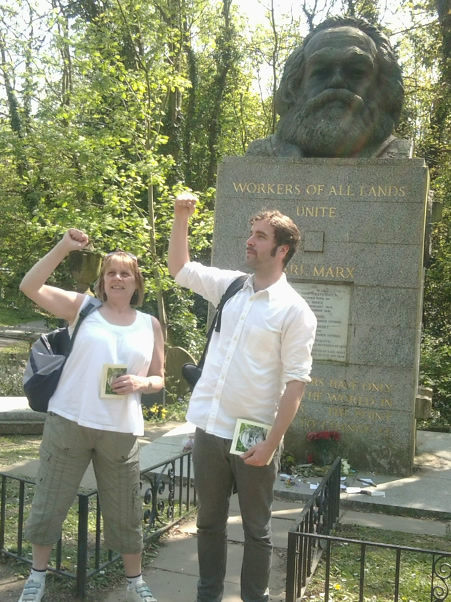 Marx’s grave in Highgate Cemetery, London.
Marx’s grave in Highgate Cemetery, London.
Notes
1 Marx, K. (1970 [1867]) Capital: Vol. 1. A Critical Analysis of Capitalist Production. Originally published in German in 1867 as Das Kapital. Translated by Samuel Moore and Edward Aveling and edited by Frederick Engels. Lawrence and Wishart: London
2 Mitchell, J. (1975[1974]) Psychoanalysis and Feminism. Penguin: Harmondsworth

